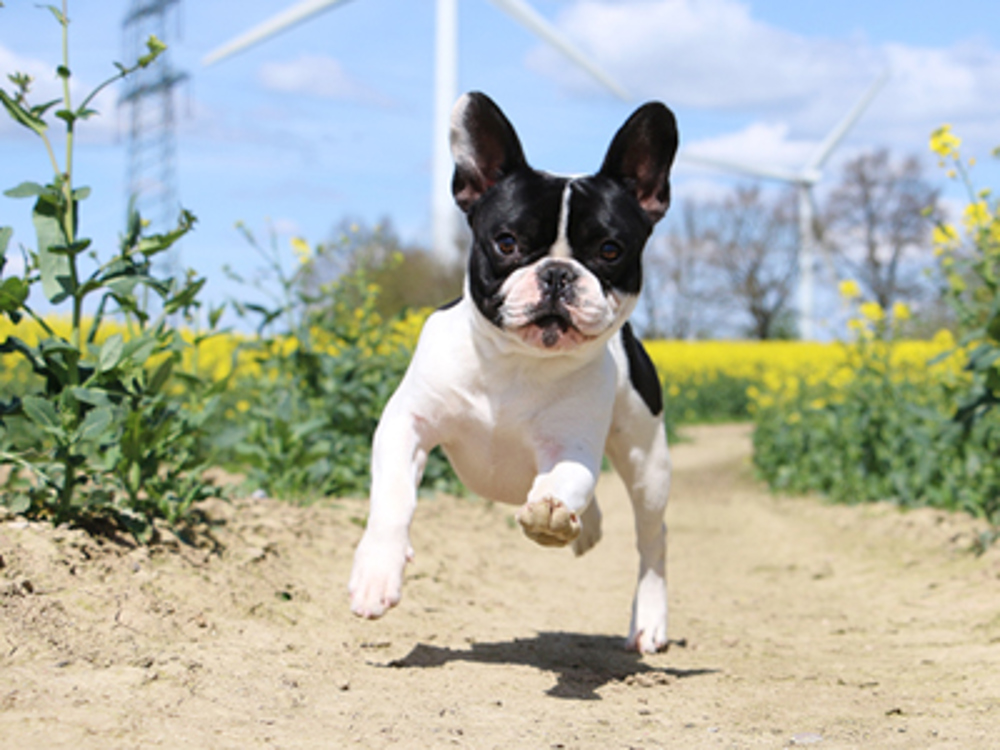
Flat-faced dogs are increasingly popular pets worldwide, particularly breeds such as the Pug and French Bulldog. Despite their popularity, many flat-faced dogs are affected by health problems that are linked with their body shape. Because of this, all potential puppy buyers of these types of dog should be aware of these health issues before making their purchase.
We suggest you read the below information on these breeds before you commit to buying a flat-faced dog.
What is a brachycephalic dog?
Dogs with a flat, wide-shaped head are said to be brachycephalic (brachy, meaning short and cephalic, meaning head). This particular skull shape will often give these dogs a characteristic flattened face and a short muzzle. Muzzle length may vary, even amongst a particular breed, with some dogs having shorter muzzles than others.
Which breeds are brachycephalic?
Popular brachycephalic breeds include, amongst others:
How head shape affects dog health
Although the shape of these dogs’ heads can make them look very cute, dogs with a very flat face and short muzzle have a higher risk of developing certain health issues associated with their features.
Find out more about what to watch out for when visiting a breeder and possible tell-tale signs that the puppy you chose to buy could develop health issues.
Breathing difficulties
The soft tissue in the nose and throat of some brachycephalic dogs may be excessive for their airways, making it difficult for them to breathe normally. Some dogs may also have narrow nostrils making it even more difficult to breathe.
What to listen and look out for
- Avoid buying puppies from parents that show signs of loud breathing, snoring noises (while awake), snorting or wheezing
- Some dogs may only develop these effects after exercise, feeding, drinking or during exciting/stressful events, so it may be difficult to assess if a dog suffers from breathing difficulties
- Ensure that the parents’ nostrils are open, resemble a kidney shape and are not tightly closed, as this can restrict their breathing further
- Always ask the owner if the mother or father have previously had any breathing difficulties or have been treated for breathing problems
- Make sure that the parents have been tested under the Respiratory Function Grading Scheme
Skin problems
Some brachycephalic dogs may have an excess of skin that creates folds, especially around the front of the face. These folds can make a warm, moist environment which is perfect for bacteria and yeast to grow, possibly leading to infection and severe itching.
What to look out for
- Red, itchy or smelly skin inside the wrinkles
- Ask the breeder if any of the parents have had skin problems and what is required to treat/prevent them
Teeth problems
Dogs with a shortened skull will often have a shortened jaw, but the number and size of teeth will stay the same. This can mean that the teeth become overcrowded, which can cause dental and gum problems.
What to ask about
- We wouldn’t recommend you try and look in a dog’s mouth, especially one that you have only just met. Instead, ask the breeder if the mother and father have suffered from any dental issues, such as overcrowding of teeth
Eye conditions
Some brachycephalic dogs may have particularly shallow eye sockets, making their eyes more prominent and at a higher risk of trauma and ulcers. Their eyes may be more susceptible to becoming dry and sore due to not being able to blink properly.
What to look out for
- Sore, red or cloudy eyes with tear stain on the hair below the eyes
- Sometimes affected dogs may blink a lot
Research before you buy
- Always find out about any special requirements your chosen breed may have. Some brachycephalic breeds may require extra care and attention, such as keeping any facial wrinkles clean and dry to prevent skin problems
- Contact your local breed club or look at our Breeds A to Z for more details about the health of the breed you’re considering
- Make sure you ask the breeder about the health of the parents and ask to see any certificates for any health screening tests that the parents may have had such as the Respiratory Function Grading Scheme
- Watch our film below on BOAS (brachycephalic obstructive airway syndrome)
- Register on The Kennel Club Academy to access our free health resources
- Learn more about brachycephalic health and welfare issues
